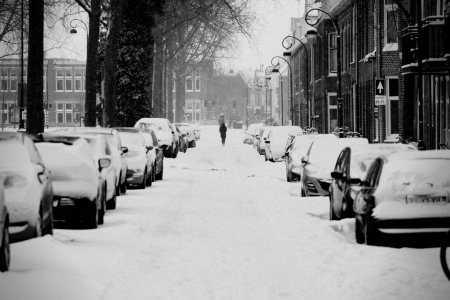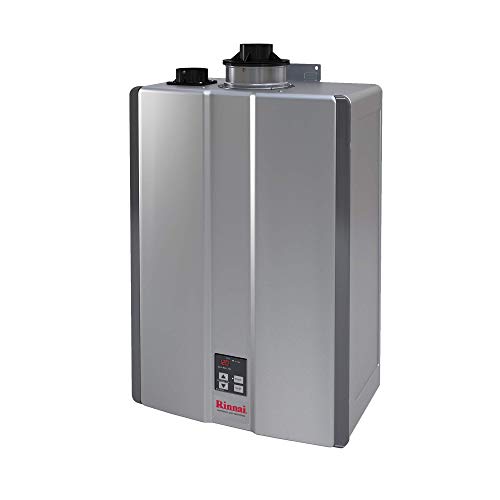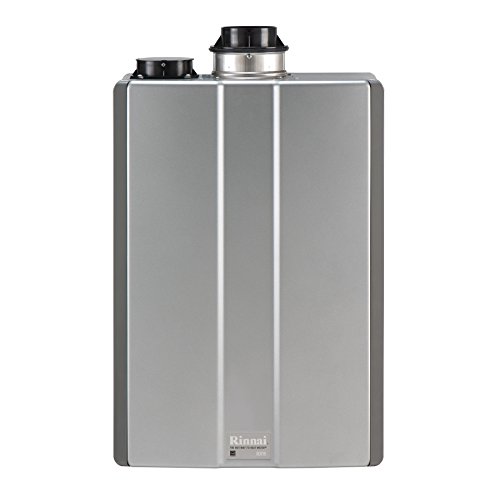Do you live in a cold climate and wonder if you can get a tankless water heater?
Well, the answer is that you can definitely get a tankless water heater even if you live in Alaska and Canada!
But you have to be aware of your household’s hot water needs, as well as the ground temperature in your area. Once you have this information, you can find the right water heater for your cold climate.
In this article, I’ll explain exactly what you need to look for in a tankless water heater if you live in a cold climate. I also give a few recommendations of water heaters that will work in cold weather, as well as a power outage, as long as you have a small generator.
So let’s get right to it!
In a Rush? Here are our Top Picks
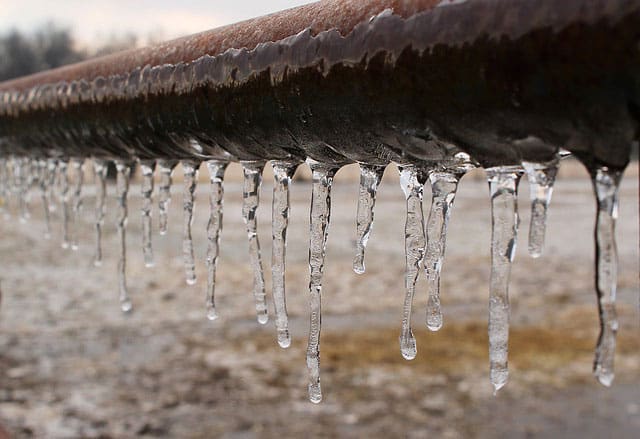
Can a Tankless Water Heater Freeze?
Without taking certain precautions, yes, your tankless water heater can freeze. It is not likely too though if you follow the steps in this guide.
Not only that, but I am only referring to outdoors tankless water heaters here.
An indoor unit is not likely to freeze unless you put it in an uninsulated area. Even then, it probably is not going to freeze anyway, it’s a possibility however remote.
If you do plan to put your unit outside then there are tankless water heaters with freeze protection that will protect them. However, that requires a power source so if you find yourself without power then you’ll need to take matters into your own hands.
More on that in a minute.
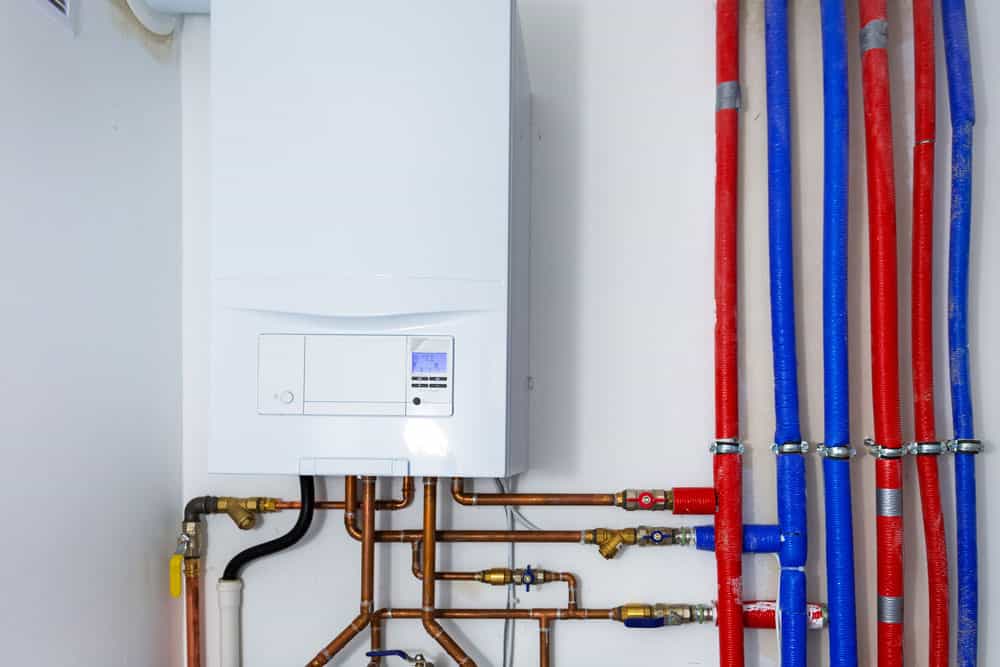
Best Tankless Water Heater for Cold Climates
If you live in a cold climate, keep in mind that you will not get the official GPM for your water heater. During the coldest months, you might only get about 70% efficiency.
So for example, a 10 GPM water heater might only give you 7 GPM of hot water if your ground water temperature is 40 degrees Farenheit. That’s because the temperature of the incoming water will determine how much hot water flow you’ll get.
If you want to learn more about how tankless water heater sizing works based on groundwater temperature, click on that article.
As I mentioned there are tankless water heaters that have freeze protection. If your area is often below freezing for days or weeks at a time, then this function is essential and I would never buy one without that option.
Electric Water Heaters for Cold Climates
In general, we don’t recommend using an electric water heater for cold climates. They typically don’t have a high enough GPM to give you continuous hot water for more than 1-2 people in cold climates. Furthermore, if your area is prone to blackouts, your water heater won’t operate unless you have a very high powered generator.
Read this article to learn how to keep your hot water running, even without electricity.
Gas water heaters, on the other hand, not only have higher GPMs, but in the case of a power outage they will work with a simple 120 volt outlet and about 100 watts. In other words, they will continue to give you hot water with any generator.
Top 3 Water Heaters for Cold Climates
That being said, here are the best water heaters for cold climates. Keep in mind that these are all gas units, for the reasons we stated above.
Rinnai RUR98iN 10 GPM
Whether you go for an indoor or outdoor tankless water heater go for the one with the highest GPM available. The Rinnai RUR98iN gets almost 10 GPM, which is enough for most families even in cold climates.
One downside is that it doesn’t have freeze protection as it is an indoor unit. But it does offer anti-frost protection.
- Innovative technology provides an endless supply of hot water. Installation...
- Recirculation capability, with or without a dedicated recirculation line...
- Offers both Concentric and PVC, providing more venting options right out of...
- Rinnai's condensing technology features dual heat exchangers to provide...
- Maximum output, minimum space. About the size of a small suitcase
Rinnai RU199iN 11 GPM
For a gas unit with even more GPM, we like the Rinnai RU199iN, which gets you just about 11 GPM. It is connected with a 120 volt outlet, so it will continue to run in an outage with any generator.
As this is a tankless unit, it will give you hot water on demand. As opposed to tank unit, the temperature of the water is not dependent on the outside temperature or how well your unit is insulated.
As long as you have enough GPM, and this unit does, you will be able to run a few showers at the same time and still get hot water in the dead of winter.
- Endless Hot Water: Our tankless hot water heaters offer unlimited...
- Energy and Space Efficient: The tankless design of this small hot water...
- Optimal Water Pressure: With a hot water flow rate of up to 11 GPM, this...
- Professional Installation Recommended: Visit the Find a Rinnai PRO page on...
- Guaranteed to Last: 15-, 5-, and 1-year residential for heat exchanger,...
Rinnai CU199iN 11 GPM
The Rinnai CU models are built for commercial use, but can also be used for residential use.
If you have a family of 5 or more and live in a cold climate, we would look into this model . It is a condensing unit, so it has much higher efficiency (97%) than a non condensing unit.
While the Rinna CU199iN will cost you more up front, it will tend to last about twice as long as conventional tank water heaters. And with the super high efficiency, you are saving on energy costs along the way.
- Energy and Space Efficient Tankless Hot Water Heater: Our commercial hot...
- Optimal Water Pressure: This tankless water heater offers a...
- Smart, Reliable Heating: Rinnai Tankless Water Heaters feature Circ-Logic...
- Professional Installation Recommended: Visit the Find a Rinnai PRO page on...
- Guaranteed to Last: 8-, 5-, and 1-year commercial warranty for heat...
How To Protect Your Tankless Water Heater From Freezing
Whether you are still shopping for the right heater or you already have one, use these 8 cold climate tips to keep your unit working year round.
8 Tips To Using A Tankless Water Heater In A Cold Climate
- Choose the Right Model
I’ve already mentioned this in more detail in the last section but it bears repeating. You need to get a tankless water heater for cold climates. You can’t just go with any old type. In fact, I would stay away from electric ones unless you use a point of use at each water fixture. Having the right unit will give you freeze protection as well as offer up enough GPM for the whole house.
- Properly Evaluate Your Water Needs
To make sure that you understand what GPM really is, I will once again suggest you check out the article I linked to above.
Think about it like this.
One of the above units I linked to on Amazon will give you roughly 10 GPM in the best case scenario. You’re not going to get the best case scenario if you live in many parts of Canada for instance. You might get half of the advertised GPM. - Go for an Indoor Unit
If you live in a cold climate with extreme temperatures or even are seeing more frequent below freezing periods then I highly suggest you go for an indoor unit if at all possible. You’ll have less issues with the unit shutting off or even freezing. You won’t see too many outdoor units the further north you go.
You have a lot of options when it comes to where to install a tankless water heater so you don’t have to worry so much about a lack of space. - Use Proper Venting
You’ll need to face your vent termination away from the wind. Wind blowing into the vent can not only affect the performance, it may cause the unit to shut off. You can check out my article about your venting options so you can see which one will work best for you given your circumstances by clicking here.
When you install your vent, not only should it be out of direct wind, but you have to account for snow, too. When you vent out from a wall horizontally it should be 12 inches above the ground so it doesn’t get blocked by the snow. If you often get more than 12 inches then you may need that to be higher or be prepared to dig it out often to keep the end clear. - Shut Off Your Recirculating Option
This is only going to affect those people with tankless water heaters that have a hot water recirculating pump for continuous hot water. If you do have one, shut that option off in case of a storm. If your vent gets snowed in then the pump will keep working. Eventually that will cause an error that will shut down the heater.
- Be Careful About Where it Drains
If you have a condensing unit or plan to get one, then make sure the condensate drain is somewhere that won’t freeze. If the water coming out of the drain freezes then it will affect how it drains. Then the unit will shut down if it senses that the condensate is blocked.
- Have Backup Power
If you have an outdoor unit or worry about freezing then make sure it always has power. The freeze protection option will only work when the unit has power. Get a generator or use a tankless heater that has a backup battery.
Something I highly recommend for anybody with a tankless water heater, or any other gas fired appliance is the HUGO Battery Backup. You’ll get up to 7 days of use out of this battery so you won’t be out of hot water in case of a power outage. - Insulate the Pipes
If your unit is an outdoor type this is essential to make sure the incoming and outgoing water stays warm and doesn’t have a chance to get cold. Even with an indoor one, you can benefit from insulating your pipes to make sure you don’t have any heat loss from cold pipes.
You can get some pipe insulation tubing that will keep your hot water hot and your cold water cold.
If you plan to leave your house for the winter, make sure you winterize your tankless water heater.
Final Thoughts
Now that you see that you can indeed use a tankless water heater in cold climates I hope you are ready to get yourself one.
They aren’t for everybody, obviously, but if you think one will work for your needs then I think they are an excellent option over having a tank system.
Again, unless you are planning to use multiple point of use tankless heaters, then you really need to use a gas one. I have a huge article that took me forever to write that will help you find the right gas tankless water heater so click that link if you haven’t already bought your unit.

Nick Lopresti is the founder of YourH2Home and a home improvement expert. He has years of experience writing about various home improvement topics, mostly as it pertains to water systems.
